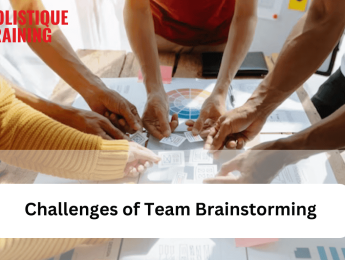- Table of Contents
- What Is Project Time Management?
- Why Is Project Time Management Important?
- 1. Delivering on Stakeholder Expectations
- 2. Resource Optimisation
- 3. Risk Mitigation
- 4. Predictable Outcomes
- 5. Managing Scope Creep
- 6. Team Morale and Satisfaction
- 7. Credibility and Reputation
- 8. Efficient Resource Allocation
- 9. Seizing Competitive Advantage
- 10. Enhanced Cost Management
- What Does Poor Project Time Management Lead to?
- 1. Missed Deadlines
- 2. Scope Creep and Feature Bloat
- 3. Budget Overruns
- 4. Compromised Quality
- 5. Team Burnout
- 6. Communication Breakdown
- 7. Decreased Stakeholder Satisfaction
- 8. Reduced Innovation
- 9. Opportunity Cost
- 10. Project Abandonment
- Main Process of Time Management in Project Management
- 1. Define Activities:
- 2. Sequence Activities:
- 3. Estimate Activity Durations:
- 4. Develop a Schedule:
- 5. Control Schedule:
- 6. Manage Dependencies:
- 7. Critical Path Analysis:
- 8. Buffer Management:
- 9. Milestones and Reviews:
- 10. Adaptation and Iteration:
- How to Become Better at Time Management As a Project Manager
- Prioritise Tasks
- Set Realistic Deadlines
- Effective Communication
- Delegate Wisely
- Continuous Monitoring
- Proven Time Management Techniques
- Best Tools for Project Time Management
- Conclusion
Introduction
Time, the one resource we can't create more of, is also the most crucial factor in the intricate dance of project management. As the conductor of this symphony of tasks, a project manager's skill in orchestrating time can make the difference between a harmonious success and a chaotic cacophony. Welcome to an exploration of the fundamental principles of project time management—a voyage into the heart of what it takes to transform mere plans into tangible achievements. From the intricate web of scheduling to the art of delegation, join us in unravelling the intricacies of this vital project management discipline.
What Is Project Time Management?
Project time management is the disciplined practice of planning, controlling, and executing tasks within a project to ensure that it is completed on schedule. This involves the identification and estimation of time requirements for each activity, followed by the allocation of resources, scheduling, monitoring, and timely adjustments to keep the project on track.
Why Is Project Time Management Important?
According to Market Splash, improved time management has the potential to alleviate work-related stress for 91% of individuals, enhance productivity for 90%, sharpen focus on tasks for 86%, and facilitate better decision-making for 83% of people. This applies to handling projects as well. Effective project time management stands as the keystone that upholds the entire edifice of project success. Its significance resonates through every phase of a project's lifecycle, from inception to closure. Let's delve into the multifaceted reasons why this discipline is not merely a checkbox on a project manager's to-do list, but an indispensable pillar of accomplishment.
1. Delivering on Stakeholder Expectations
Efficient project time management is crucial for meeting the expectations of clients and stakeholders. By delivering on time, a project manager establishes trust, showcases reliability, and ensures client satisfaction. It demonstrates a commitment to honouring agreements and reinforces the project's credibility.
2. Resource Optimisation
Time, as a resource, needs to be allocated judiciously. Proper time management prevents resource wastage, ensuring that manpower, budget, and other resources are used effectively. It maximises productivity, as resources are utilised optimally to complete tasks within specified timeframes.
3. Risk Mitigation
A well-planned project timeline acts as a buffer against potential risks and uncertainties. Effective time management allows for the identification of potential delays and challenges. This early recognition enables teams to adapt, strategise, and resolve issues promptly, minimising the impact of risks on the project.
4. Predictable Outcomes
Accurate time estimates foster predictability. When tasks have clear deadlines, team members can plan their work accordingly. Predictable outcomes instil confidence among team members, stakeholders, and clients. This stability contributes to a positive project environment, allowing for better decision-making throughout the project's lifecycle.
5. Managing Scope Creep
Scope creep, the tendency for project scope to expand uncontrollably, can be mitigated through effective time management. Clearly defined timeframes help in keeping the project's scope under control. When timelines are adhered to, it becomes easier to identify and address scope changes, ensuring that the project stays on track.
6. Team Morale and Satisfaction
Consistently meeting deadlines reduces stress for team members. When project schedules are realistic and achievable, team members can work without undue pressure. High morale leads to job satisfaction, fostering a positive work environment and encouraging creativity and innovation among team members.
7. Credibility and Reputation
A project manager known for delivering projects on time gains credibility and respect within the industry. This positive reputation attracts clients, partners, and opportunities. A reliable track record in project time management enhances the project manager's professional standing and opens doors for future collaborations.
8. Efficient Resource Allocation
Meticulous planning allows for efficient resource allocation. When tasks are well-defined and scheduled, team members can focus on their work without unnecessary interruptions. This focused approach enhances productivity, leading to higher-quality output and a streamlined workflow.
9. Seizing Competitive Advantage
In today's competitive business landscape, time is a valuable commodity. Projects that are executed swiftly gain a competitive advantage. Timely completion can lead to increased market share, customer satisfaction, and profitability. Being ahead of competitors in project delivery can be a significant differentiator in the market.
10. Enhanced Cost Management
Timely project completion is directly related to cost management. Delays in project timelines can lead to additional expenses, such as extended resource utilisation and increased overheads. By completing tasks on time, unnecessary costs are avoided, contributing to effective budget management and overall project profitability.
Table 1: The benefits of effective time management
Benefits | Descriptions |
Reduced Stress | Enhances well-being and mental health |
Increased Productivity | Boosts efficiency and task completion |
Enhanced Focus | Improves concentration on important tasks |
Better Decision-Making | Enables informed and thoughtful choices |
Improved Work-Life Balance | Enhances personal and professional harmony |
Higher Job Satisfaction | Increases contentment and morale at work |
Strengthened Professional Relationships | Fosters trust and collaboration with colleagues |
In essence, project time management transcends mere scheduling; it embodies the art of orchestration, where the conductor (project manager) guides each instrument (task) with precision, resulting in a harmonious symphony of success. Every tick of the clock resonates with the project's heartbeat, echoing the commitment to excellence and the promise of a fruitful journey from inception to completion.
What Does Poor Project Time Management Lead to?
Picture a puzzle missing a critical piece, and you'll have an analogy for the role of time management in project execution. Poor project time management isn't just a minor setback; it's the missing piece that can unravel even the most meticulously planned projects. Let's explore the labyrinth of consequences that await when time slips through the fingers of project managers.
1. Missed Deadlines
Missed deadlines are not just a delay; they can severely impact a project's success. Timelines are commitments made to clients and stakeholders. Failure to meet these deadlines can lead to damaged relationships, loss of trust, and potential legal consequences, jeopardising future business opportunities.
2. Scope Creep and Feature Bloat
Poor time management often leads to scope creep, where project requirements expand beyond the initial agreement. This leads to additional features and changes, bloating the project's scope. Managing a project without strict adherence to deadlines enables these scope changes, making it challenging to deliver within the allocated resources and timeframe.
3. Budget Overruns
Delays caused by poor time management can escalate costs significantly. Extended resource utilisation, increased overheads, and the need for additional manpower to compensate for lost time drive the budget beyond its planned limits. Budget overruns strain financial resources and impact the overall financial health of the project and the organisation.
4. Compromised Quality
Rushing to meet unrealistic deadlines often results in compromised quality. In a time crunch, corners are cut, testing procedures are abbreviated, and errors become more likely. This compromises the quality of the deliverables, affecting their functionality, reliability, and overall value to the stakeholders.
5. Team Burnout
Constant pressure due to poor time management leads to team burnout. Overworked and stressed team members become less productive, make more mistakes, and are more likely to leave the project or the organisation. Team burnout adversely affects morale, creativity, and collaboration, hindering the project's progress further.
6. Communication Breakdown
Inadequate time management can lead to poor communication within the team. Without clear updates on task progress and potential delays, misunderstandings arise. Communication breakdowns lead to confusion, frustration, and a lack of coordination among team members, hindering overall productivity.
7. Decreased Stakeholder Satisfaction
Projects that don't meet deadlines or deliver subpar results fail to satisfy stakeholders. This dissatisfaction not only affects client relationships but also impacts a project manager's credibility. Dissatisfied stakeholders are unlikely to provide positive references or engage in future collaborations, harming the organisation's reputation.
8. Reduced Innovation
Poor time management leaves little room for exploring innovative solutions. Teams constantly rushing to meet deadlines focus on immediate problem-solving rather than experimenting with creative approaches. This lack of innovation limits the project's potential for excellence and groundbreaking solutions.
9. Opportunity Cost
Time wasted due to poor management represents an opportunity cost. Resources spent rectifying delays and issues could have been invested in pursuing new projects or improving existing ones. The organisation misses out on potential revenue and growth opportunities due to the focus on resolving problems caused by time mismanagement.
10. Project Abandonment
Chronic delays and stakeholder dissatisfaction may lead to project abandonment. When stakeholders lose faith in the project's ability to deliver, they might choose to abandon it altogether. Project abandonment wastes the resources invested until that point, including time, money, and effort. Moreover, it tarnishes the organisation's reputation, making it harder to secure future projects and partnerships.
In essence, poor project time management doesn't just disrupt the project momentarily; it has far-reaching consequences that can damage relationships, drain resources, compromise quality, and hinder the organisation's overall growth and reputation. It emphasises the critical importance of effective time management in project planning and execution.
Main Process of Time Management in Project Management
Project time management is the choreography that transforms a multitude of tasks into a synchronised dance of accomplishment. To achieve this precision, a well-defined process guides project managers through the intricacies of time allocation, scheduling, and monitoring. Let's break down the main steps that compose this critical process:
1. Define Activities:
Defining activities involves breaking down the overall project scope into specific, manageable tasks. This step is akin to identifying individual dance moves in a choreography. Each activity becomes a fundamental building block, outlining what needs to be accomplished from conception to completion. A clear understanding of these tasks provides the foundation upon which the entire project stands.
2. Sequence Activities:
Sequencing activities is akin to choreographing a dance routine. Each task needs to follow a logical order, just like dance steps need to flow seamlessly. Recognising task dependencies ensures that activities are organised in a way that avoids bottlenecks. This strategic arrangement promotes efficient resource utilisation and prevents conflicts that might hinder the project's progress.
3. Estimate Activity Durations:
Estimating activity durations involves both art and science. Project managers must consider various factors such as task complexity, available resources, historical data, and external variables. These estimations are vital puzzle pieces, directly impacting the overall project timeline. Accurate estimates are crucial for realistic planning and ensuring that the project stays on schedule.
4. Develop a Schedule:
Developing a schedule is akin to choreographing the entire dance routine. With activity durations estimated and dependencies understood, the project manager assembles these elements into a cohesive schedule. This timeline serves as a detailed roadmap, outlining when each activity starts and ends. It provides a clear picture of the project's progression, allowing team members to understand their roles and deadlines.
5. Control Schedule:
Project timelines are dynamic and rarely fixed. The control schedule phase involves constant vigilance. Project managers monitor the actual progress against the planned schedule. Deviations from the schedule are identified early, and corrective actions are taken promptly to realign the project trajectory. This active management ensures that any deviations are addressed before they escalate into significant delays.
6. Manage Dependencies:
Managing task dependencies is crucial for ensuring the project's smooth execution. Just like dancers in a performance need to be in sync, tasks in a project must be coordinated. Understanding these interconnections is vital; a delay in one task could have a cascading effect, impacting subsequent activities. By managing dependencies effectively, project managers prevent disruptions and maintain the project's flow.
7. Critical Path Analysis:
Identifying the critical path is akin to highlighting the most essential dance steps. The critical path is the sequence of tasks that, if delayed, will delay the entire project. Recognising these critical tasks is vital for prioritising efforts and resources. Focusing on these tasks ensures that the project stays on track, emphasising the importance of timely completion of these specific activities.
8. Buffer Management:
Incorporating buffers into the schedule is akin to having safety nets in a dance performance. Buffers act as cushions to absorb unforeseen setbacks without derailing the main project timeline. These buffers are strategically placed time intervals that provide room for adjustments, ensuring that minor delays do not compromise the overall project deadline.
9. Milestones and Reviews:
Breaking the project into milestones is akin to marking significant checkpoints in a dance routine. Milestones serve as indicators of progress and allow for systematic assessment. Regular reviews provide opportunities to evaluate whether the project is on track. They serve as moments to analyse the choreography, ensuring that every step aligns with the intended vision of the performance.
10. Adaptation and Iteration:
Project time management is not a one-time effort; it's an ongoing process. Just as dancers adapt their movements based on the audience's response, project managers must adapt to changing circumstances. New information may emerge, requiring adjustments to the choreography. Being adaptable and open to iteration ensures that the project remains aligned with its objectives, even amidst evolving conditions.
In essence, project time management, like choreography, is about precision, coordination, and adaptability. Each step in the process contributes to the overall harmony, ensuring that the project progresses smoothly, meets its deadlines, and achieves its goals with finesse and efficiency.
How to Become Better at Time Management As a Project Manager
As a project manager, mastering time management is essential. Here are some strategies to help you improve your time management skills:
Prioritise Tasks
Identify high-priority tasks and allocate resources accordingly. Not all tasks are created equal; focus on those that contribute most directly to project goals.
Set Realistic Deadlines
Set achievable deadlines that consider the complexity of tasks and the availability of resources. Unrealistic timelines can lead to rushed work and compromised quality.
Effective Communication
Maintain open communication channels with your team and stakeholders. Clear communication ensures everyone understands their roles and responsibilities, reducing misunderstandings and delays.
Delegate Wisely
According to Timeular, an underwhelming 20% of people feel like they’ve got their daily workload under control. That’s more than enough reason not to shoulder all the tasks yourself. Delegate tasks to team members based on their strengths and workload capacity.
Continuous Monitoring
Regularly monitor the project's progress and compare it to the schedule. Address any deviations promptly to prevent larger problems down the line.
Proven Time Management Techniques
Several time management techniques have proven effective for project managers:
Pareto Principle (80/20 Rule): Focus on the tasks that contribute the most value. Often, 20% of efforts yield 80% of results.
Time Blocking: Allocate specific blocks of time to work on certain tasks. This minimises multitasking and increases concentration.
Eisenhower Matrix: Prioritise tasks based on their urgency and importance, dividing them into four categories: urgent and important, important but not urgent, urgent but not important, and neither urgent nor important.
Pomodoro Technique: Work in focused intervals, usually 25 minutes, followed by a short break. This helps maintain productivity and prevents burnout.
Gantt Charts: Visualise project schedules using Gantt charts, which show task dependencies and timelines, aiding in effective planning and monitoring.
Best Tools for Project Time Management
According to Clockify, a staggering 82% of people don’t follow a dedicated time management system. Given that you don’t want to be one of them, you will need some tools to help you become better at time management, especially when it comes to working on projects. Here are some of the tools that can significantly enhance project time management:
Conclusion
Project time management is the cornerstone of successful project delivery. By understanding its importance, mastering its processes, adopting effective strategies, and utilising proven techniques and tools, project managers can navigate the complex landscape of deadlines, resources, and stakeholder expectations with confidence. Remember, effective time management not only ensures project success but also paves the way for improved team dynamics, client satisfaction, and professional growth.
Finally, if you're eager to delve even deeper into the art of time management, our comprehensive course ‘Time Management & Avoiding Procrastination’ offers practical insights, proven techniques, and real-world strategies to harness time's power and unlock your full potential. Embrace the opportunity to sculpt success, starting with the mastery of time. Contact us now for more information!
























